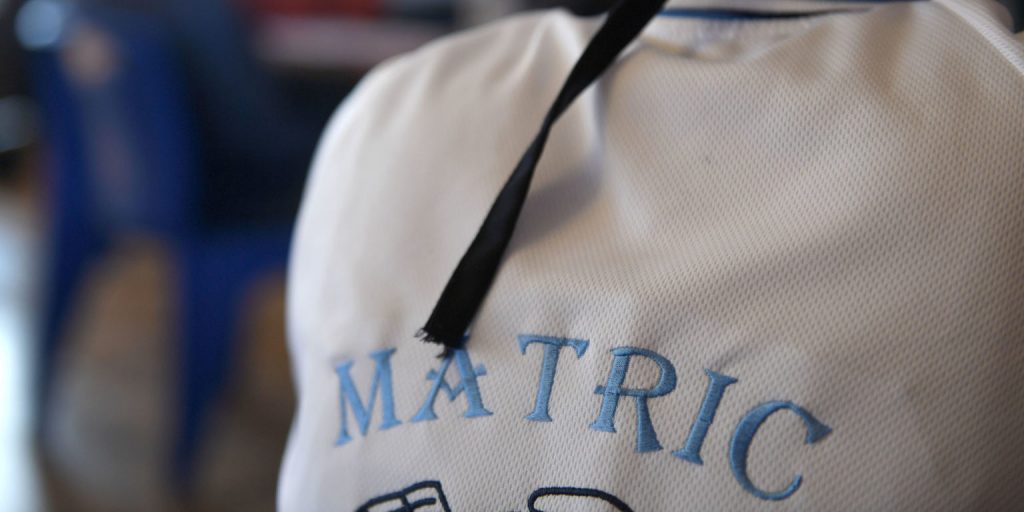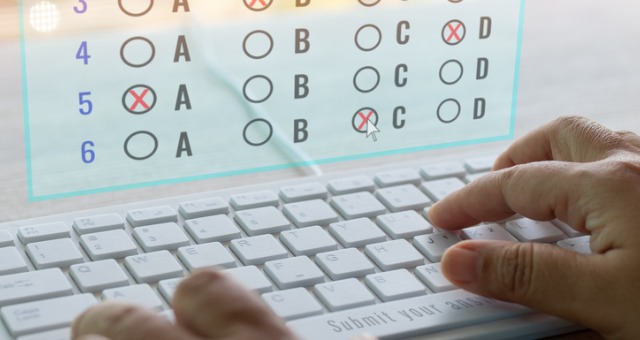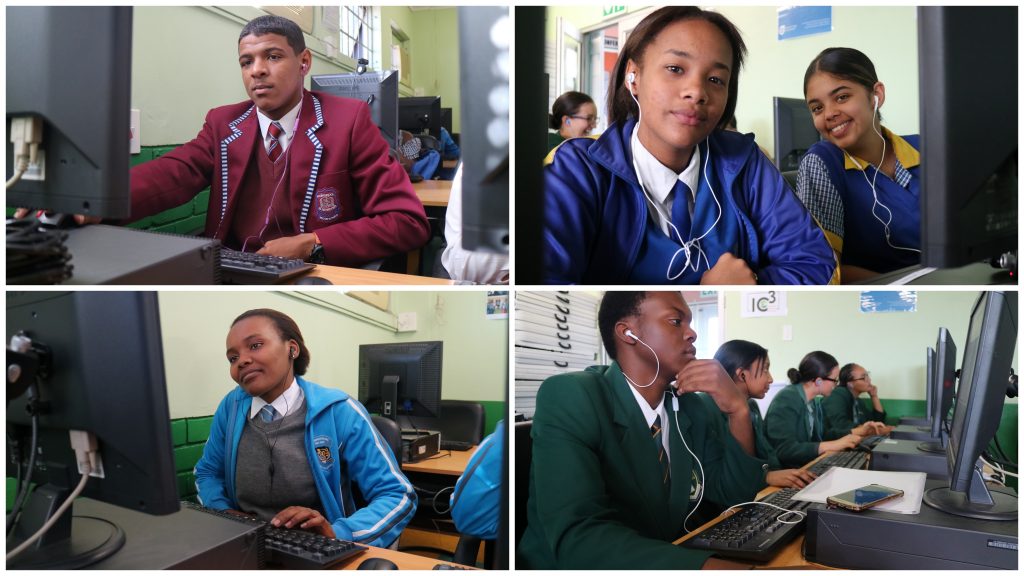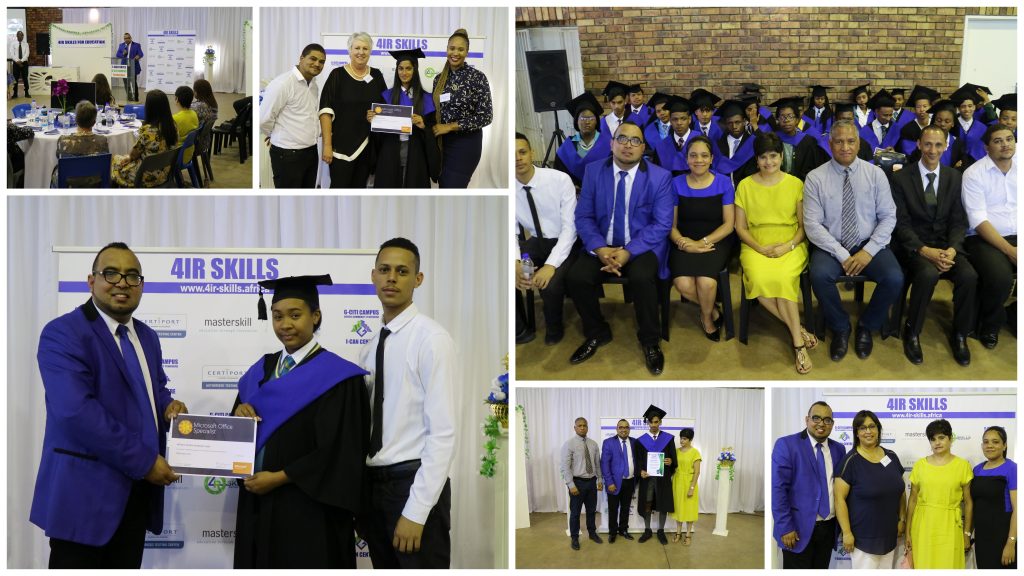
It was not an easy decision to make, but the Department of Basic Education said on Friday, 4 December that the integrity and credibility of the matric papers were compromised. “When we presented our reports to Umalusi, they concluded that the integrity and credibility of the two questions papers have been irrevocably compromised,” said the department’s chief director for national assessment and public examination, Dr Rufus Poliah.
Umalusi is the independent quality assurance body for the exams, approves the final results, and issues matric certificates. Poliah, the Minister of Basic Education Angie Motshekga and the head of the department, Hubert Mweli briefed the media on Friday about the exams and the leaks.
An investigations team was tasked with establishing the extent of the leak so as to determine if a rewrite of the Mathematics P2 and Physical Science Paper 2 is necessary.
The team found the spread of information on cyber networks made it “virtually impossible” to accurately identify the number of learners that have had access to the leaked question papers.
“The National Senior Certificate (NSC) is the flagship qualification relating to schooling. Credibility of the NSC examination is of paramount importance.
“Any lingering doubt relating to the credibility of the NSC examinations must be thoroughly investigated and addressed. Avoiding prior access to the question paper is what all security measures are directed towards.”

While the Hawks (National Investigation Unit) have made arrests, the Minister of Education, Angie Motsheka has alluded to in-depth consultation with stakeholders on the matter. While the quality and integrity of examination has been compromised, after a painful education year for Grade 12 students, we struggle to hear an overall solution to the matter.
This brings us to a revolutionary thought-process how technology can resolve this matter. In many other industries across the globe and locally, technology has served as tool of acceleration, scalability and quality assurance.
So how can Online Examination address the leaked paper issue in South Africa?
For the novice, an Online Examination is the conducting of an examination or test online in order to measure student’s academic performance. Traditionally, these evaluations were conducted orally or through written tests using pen and paper. Students gathered in an examination hall or room where a question paper was handed to students and students had to write answers within the allotted time period. These questions were not seen previously in order to ensure a fair evaluation of all students. Students then turn in their answer sheets and after a period of time, evaluators share student scores.

With an online examination, all these traditional elements continue to persist, however, the mode of test-taking has changed – instead of a physical examination hall, students instead log into an online examination system through which they access the question paper and share their answers. Evaluation and the publication of results also happen within this system.
Why do we ask Examiners to write their exams by hand, when it is an inescapable fact that modern life is digital?
E-assessment is all about learners applying their knowledge and skills to real-world situations. We call it online authentic assessment, and it is both simple and revolutionizing. The digitization of assessments leads to educational transformation for every examiner and staff member involved.
When sitting a digital exam, they enter a paperless flow where assignments and papers are handled with a mere click at a button. In on-screen marking the quality checks are less subject to bias! Digital exams are much more than just putting existing tests online. Examiners can personalize and differentiate learning and exam content for their students!
Recently, we have seen how UNISA have taken exams online and remotely! This revolutionary approach has left an indelible mark on education within a digital context! https://www.unisa.ac.za/sites/corporate/default/News-&-Media/Articles/Online-examinations-find-favour-with-Unisa-students
Other African countries has also adopted “online examination” within the higher education sector. The University of Nairobi is the first university in Africa that conducted an online during the COVID-19 pandemic period.
Article – https://allafrica.com/stories/202005280056.html
Can Basic Education of South Africa adopt Online Examination for the National Senior Certificate?
With the advent of 4IR, we have seen how Artificial Intelligence is playing a major role in automation, sales, big data and surveillance. How much more in education, especially in terms of online examination!
In the book of “Closing the Gap” authored by Prof Tshilidzi Marwala, he places an emphasis on the role of technology in education (page 23), “As the education system adapts to this changing landscape, part of our role has to include teaching our students about the 4IR ”
The downside of online exams within our educational context is the lack of digital literacy amongst students and overall technology infrastructure at schools. Digital Literacy, inevitably creates and builds confidence, for students to embark on an online exam. Alternatively, the exam budget of printing cost will drop tremendously. What a promising value-add to our current education budget constraints! To the extend, those infected with COVID-19 virus and recovering (during exam time) will be able to complete the exam remotely, using artificial intelligence as a remote security!
As the Department of Education is developing new subjects and integrating various systems into the education curriculum, it must find a way to perceive online examination as a value integrated into their systems, subsequently preparing Grade 12 students for the world of work. Resulting in the National Senior Certificate to find true value, restored credibility & integrity within the education sector and the marketplace.

Also in 2019, Genesis CITI certified more than 300 High School students through an online exam portal, where almost 270 received global Microsoft and remaining 30 students received renowned Intuit Quickbooks certification. This advanced digital project called “4IR Skills for Education” has gained tremendous attraction from public and private sector over the past 3 years. Clearly, the success validates that High School students can migrate to a digital platform in undertaking exams.

Recently, I discovered how a global edtech award winning company, mElimu, (https://www.melimu.com/onlineexamindia/) has taken online examination into an offline environment. This revolutionary breakthrough is fit for schools with low bandwidth.
Below is a recent (Aug 2020) webinar, where Llewellyn Scholtz (Digital Education Specialist) and other Education Delegates globally explaining in detail the effectiveness and efficiency of an Online Examination Portal with global speakers who has utilized the platform. The webinar was hosted by General Manager of mELimu, Pramil Verma.
Also, a recent discussion was held on Radio 786, about the potential and impact of Online Examination with Pramil Verma, General Manager of mElimu.
To further the discussion in regards to “online examinations”, I have attached some research papers on “E – Examinations” to consider.
Let us take time out to read and reflect on a research paper by Ivans Kwigana (University of Pretoria) on “A Digital Forensic Readiness Architecture for Online Examinations”
The article has been written and compiled by Llewellyn Scholtz.
Llewellyn Scholtz is currently the Executive Director of an educational non profit organization Genesis Community IT Initiative & Centre Manager of the I-CAN Centre, an initiative of the Western Cape Government. Also He is the CEO of G-CITI Campus, an IT College that offers industry – led training. He also the Country Manager of the global educational technology partner mElimu that provides Africa and abroad educational solutions! He leads a dynamic team in disrupting the education sector with global recognized vendor vocational technology training that promotes employability and entrepreneurship. Successfully, more than 10000 citizens were empowered in digital skills in 4 years through the I-CAN Centre! As a Digital Education expert, Llewellyn provides consultation to educational institutions in aligning vocational curriculums towards global recognized certification to ensure students become effective and efficient in the workplace in preparation of the 4th Industrial Revolution. Llewellyn developed a successful recipe for creating inclusive public tech hubs that promotes access to technology, adoption of technology and the empowerment of digital skills through public private partnerships. He is also a passionate and inspirational keynote speaker addressing the digital divide in South Africa. His story is life-changing, and his insight into the future of education is revolutionary. His weekly radio show (Radio 786) has an average of 5 000 listeners tuned per week as he educates citizens about the world of technology. Recently, Llewellyn received the prestigious Western Cape Entrepreneurship Award (WCERA) 2020 within the category of Social Enterprise.